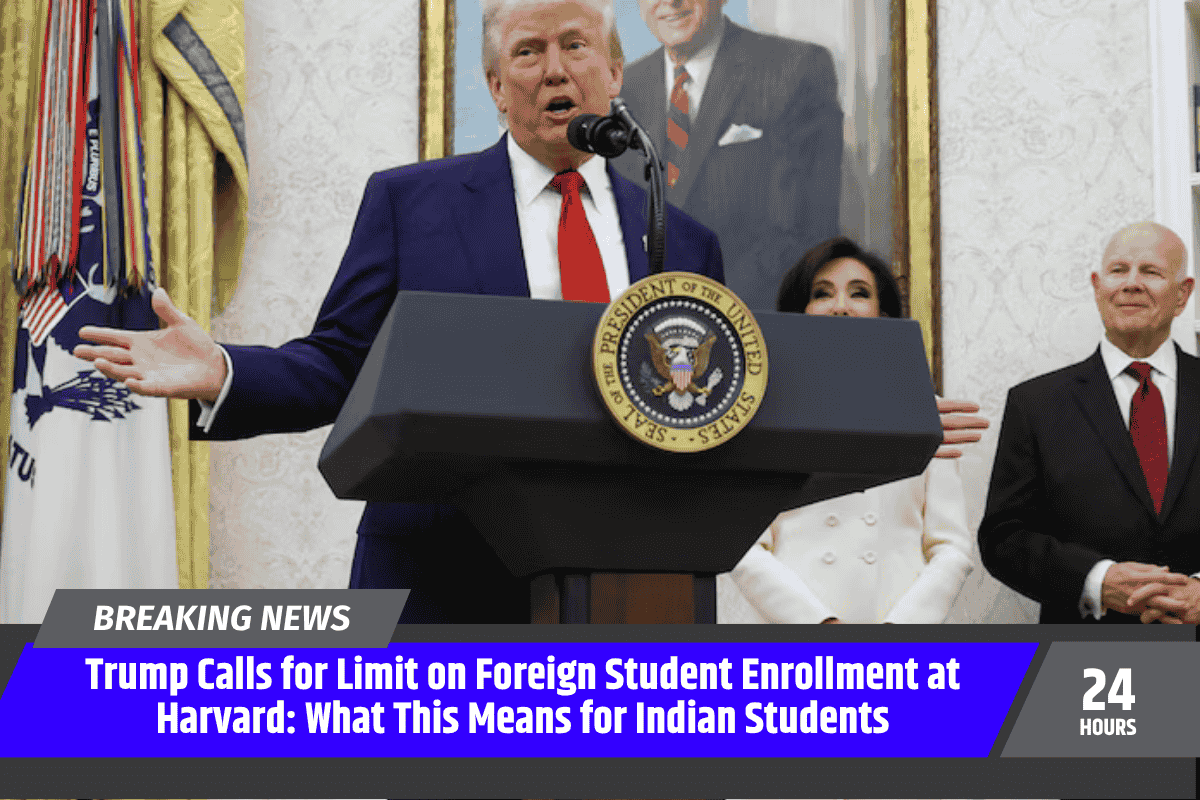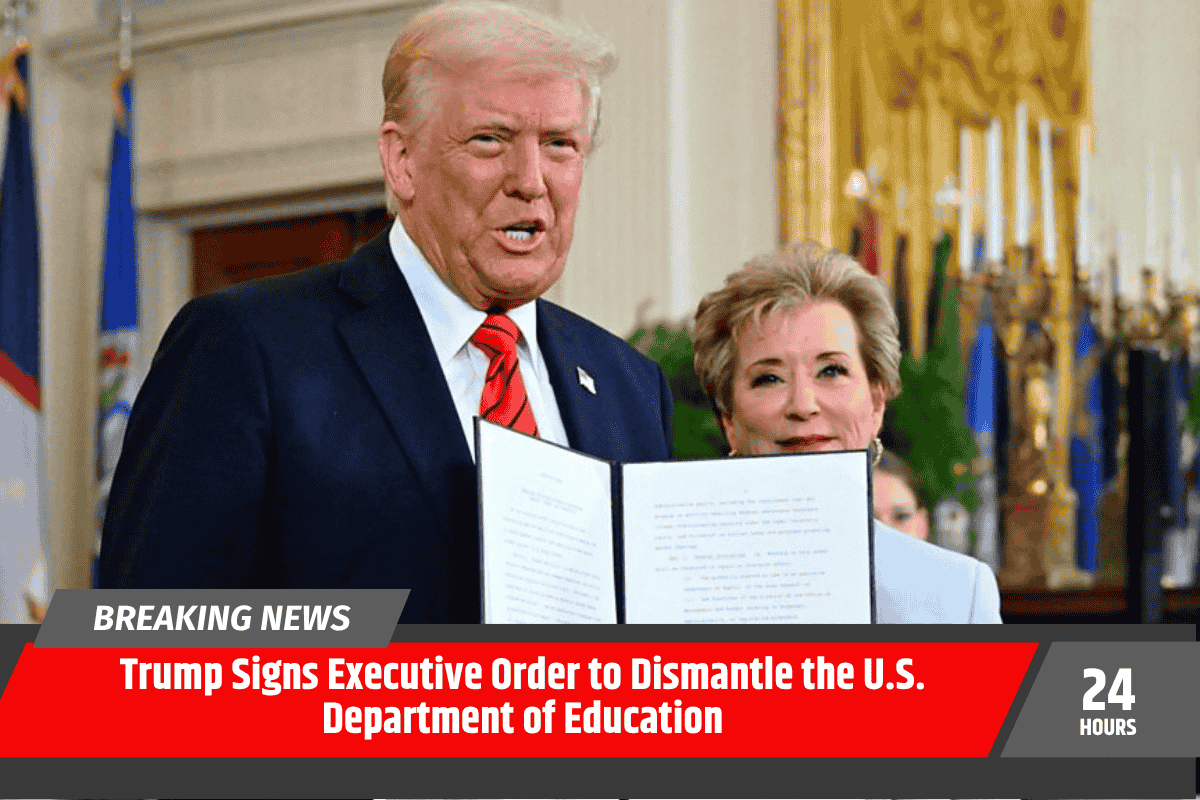Former US President Donald Trump’s recent comments about limiting the number of foreign students at Harvard University have raised concerns among international students, particularly those from India.
In a statement at the White House, Trump suggested capping foreign student enrollment at Harvard to 15%, a significant reduction from the current 27%.
The move is part of a larger push by the Trump administration to address various educational and political issues, including foreign student admissions and antisemitism concerns related to protests over the Israel-Gaza conflict.
This new proposal has left many wondering how it could impact Indian students, who make up a significant portion of international student enrollments in the US.
Trump’s Proposal to Cap Foreign Student Enrollment
Trump’s suggestion to limit foreign students at Harvard comes after a series of measures targeting international student enrollment.
He criticized the current percentage, which stands at around 27%, and argued that American students are losing out on university spots because of the increasing number of foreign students.
Trump’s stance, particularly against elite universities like Harvard, is part of a broader effort to adjust policies regarding admissions, hiring, and campus culture, including tackling issues related to antisemitism.
The Fallout: Harvard’s Lawsuit and Funding Freeze
In response to Trump’s push, the US government has frozen over $2.6 billion in federal research funding for Harvard University. The university has contested this move, filing a lawsuit that has temporarily halted the implementation of the funding freeze.
Harvard’s response highlights its efforts to protect its international community and academic freedom, arguing that the freeze could significantly affect the university’s operations and research capabilities.
At present, Harvard hosts nearly 6,800 international students, making up around 27% of its total student body. The total number of international individuals on campus, including fellows and their dependents, exceeds 10,000.
This highlights the significant role foreign students play in both the academic environment and the financial sustainability of the institution.
Impact on Indian Students
For Indian students, who make up the largest group of international students in the US, the proposed policy changes are particularly concerning.
According to Sanjog Anand, co-founder of Rostrum Education, over 331,600 Indian students were enrolled in the US during the 2023-24 academic year, representing nearly 30% of the international student population.
The new limits could affect thousands of Indian students hoping to attend prestigious institutions like Harvard.
Despite these concerns, experts like Anand suggest that the situation is still developing, and universities and advocacy groups are actively working to resolve these issues.
Many believe that while the current situation is worrying, it is unlikely to lead to immediate or long-term changes for Indian students.
Saurabh Arora, founder of University Living, pointed out that the US remains a top destination for Indian students due to its world-class universities, research opportunities, and career pathways, and that families may choose to wait for clearer policy direction.
A Mixed Picture for US Higher Education
The situation also highlights a more complex and evolving debate about the role of international students in US universities. Rahul Subramaniam, co-founder of Athena Education, believes that while the policy changes may seem restrictive, they should be viewed in a broader context. Subramaniam stressed that international students, particularly those from India, are vital to the financial health and academic success of many US universities. At the same time, he noted that previous restrictive measures have often been reversed or adjusted, suggesting that there may be room for compromise.
Nikhil Mudgal, founder of Lorien Finance, emphasized the importance of staying informed and prepared. As the situation develops, international students should maintain communication with their universities and seek expert advice on immigration matters.
Mudgal’s remarks highlight that there are still legal protections in place, such as a federal judge’s injunction that has temporarily blocked the administration’s efforts to revoke international students’ legal status.
The Future of Global Academic Collaboration
The Trump administration’s actions raise significant questions about the future of global academic collaboration.
Sripal Jain, co-founder of Simandhar Education, warned that the sweeping nature of these changes could have broader consequences for international student exchange and global cooperation in education.
He emphasized the importance of constructive dialogue to resolve the issue in a way that balances national security concerns with the values of academic freedom and international cooperation.
Despite the uncertainties, experts remain hopeful that the situation will stabilize. Subramaniam concluded by saying that Indian students will likely continue to be a major part of the US education system, with their academic and professional contributions being highly valued.
While recent developments have caused some concern, they also underline the dynamic nature of international student policies in the US. Indian students should stay informed, seek advice, and explore all possible options as the situation continues to unfold.








